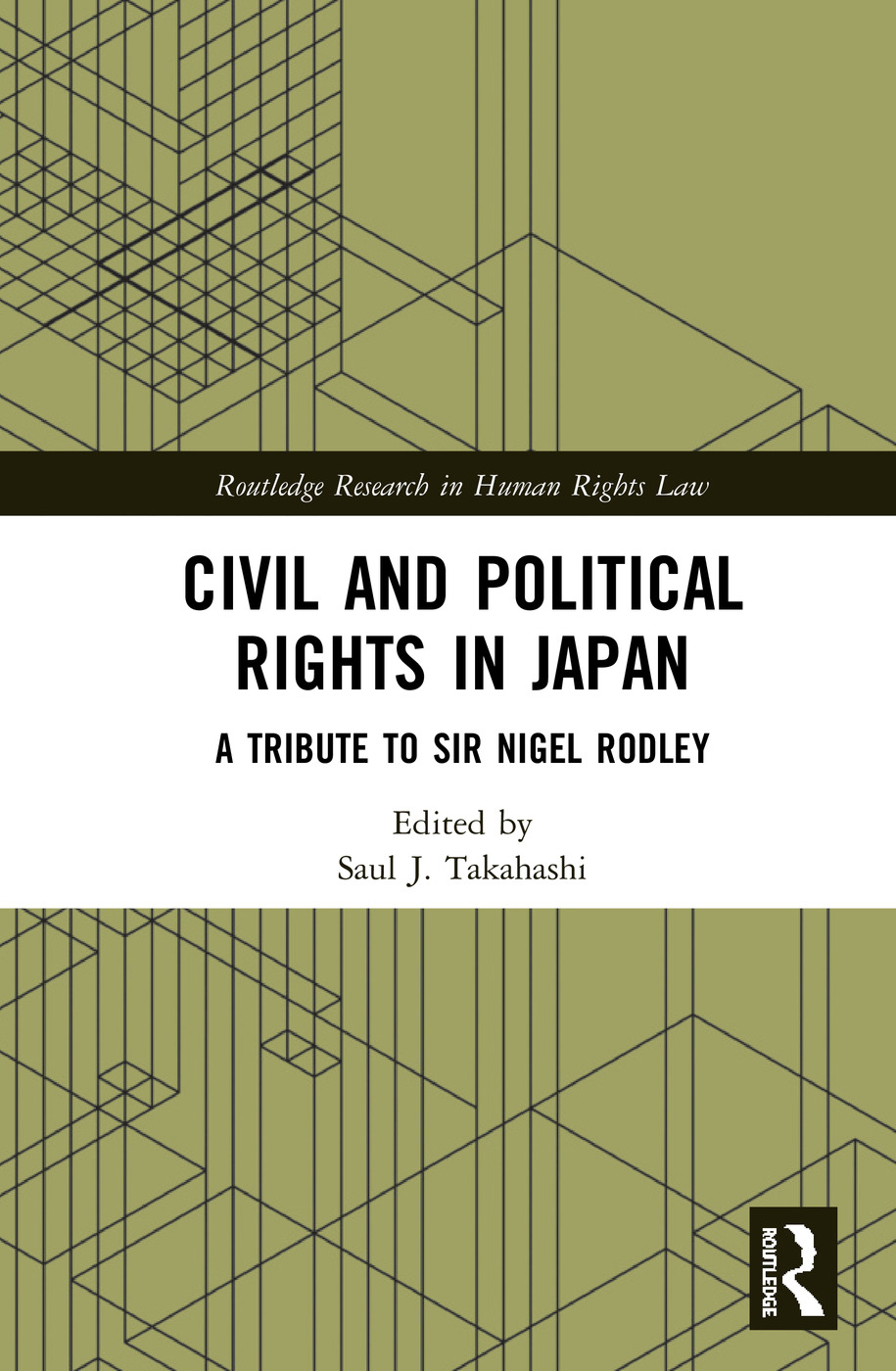
Title
Routledge Research in Human Rights Law Civil and Political Rights in Japan A Tribute to Sir Nigel Rodley
Size
202 pages, hardcover
Language
English
Released
February 05, 2019
ISBN
9780815385844
Published by
Routledge
Book Info
See Book Availability at Library
Japanese Page
Civil and Political Rights in Japan is a rare collection of analyses of human rights practice in Japan, written in English by scholars specialized in specific fields of civil and political rights. Dr. Ai Kihara-Hunt initiated the project to commemorate a human rights giant, Sir Nigel Rodley, who taught many of the contributors of this book. It was triggered by Nigel’s public comments, as the at-the-time Chair of the United Nations Human Rights Committee (the UN Committee that scrutinizes states’ practice in civil and political rights), that Japan was ignoring many of the Committee’s previous recommendations and that making same recommendations repeatedly was not the best use of the Committee’s resources. The editor, Saul J. Takahashi, and the contributors share the sense of danger in the increased tendency of Japan to take UN human rights authorities’ advise lightly.
The publication provides analyses of Japan’s practice on various topics of civil and political rights, including on criminal justice, discrimination, remedies after Fukushima, military sexual slavery, refugees and displaced persons, the media, surveillance, women’s empowerment, and hate speech. Dr. Kihara-Hunt has contributed two chapters: on the policing of Okinawa protests and the discrimination against women in marriage, taking a legal approach.
In the chapter on criminal justice, the systematic prevalence of the prosecuting authority over defense is pictured by the examination of the system and example cases. Prohibition of hate speeches is legalized partially, however, it fails to recognize the severity of hate speech, as it is examined in the chapter on the topic. The chapters on discrimination and empowerment of women and Dowa people illustrate that Japan’s recent efforts to improve the situation are yet to make a solid progress in the circumstances these people face. The chapter on military slavery captures Japan’s continuous failure to consider the issue as a human rights-related one. Fukushima disasters are newer in our memory, and the non-judicial remedies for victims are critically studied in the dedicated chapter. Refugees and migrants represesent another group of people who are not appropriately protected, despite the country’s recent effort to correct it, which can be seen in the relevant chapter.
Kihara-Hunt’s chapter on the analysis of the practices of the riot police and Japan Coast Guard recaptures practical indicators for checking law enforcement agents’ human rights practice and applies them to the protests against the American base in Okinawa. Her other chapter highlights that the law related to marriage and family life systematically discriminates against women and questions the legitimacy of the court to uphold the practice.
These observations are all the more worrisome with Japan’s recent decline in the interest to comply with human rights standards.
This book’s focus on the actual practice would help readers capture the accurate picture of the human rights situation in Japan. It is also a recommended textbook for those who wish to learn critical writing, particularly in the area of human rights.
(Written by Ai Kihara-Hunt, Associate Professor, Graduate School of Arts and Sciences / 2020)



 Find a book
Find a book


 eBook
eBook